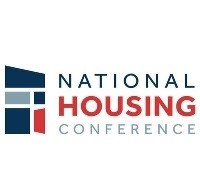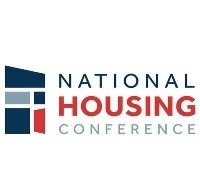Should I Become A Commercial Real Estate Broker?
So, you want to be a commercial real estate broker, do you?
You’ve probably heard plenty of negative things about getting into the commercial real estate business. Maybe you think you’re not smart enough or not ready for the big leagues. Maybe you’re not good at math, or you think you’re too old or too young. Or, dare we say, you think that commercial real estate is a man’s world, and last time you looked, you’re weren’t a man.
Well, it’s reality check time. All of these objections can be overcome. And while you may not be able to easily change your gender, the fact is that both men and women can do quite well in commercial real estate.
In this article we’ll cover everything you need to know about becoming a commercial real estate broker.
Why do people become commercial real estate brokers?
Making the move into commercial real estate isn’t a decision to take lightly. It’s an extremely demanding business, there’s a tremendous amount of work involved, and it can take a long, long time before that first commission check comes in.
With that in mind, here are the three biggest reasons why people quit their 9 to 5 desk job – or transition from the residential market – to become a commercial real estate broker:
Money is bigger and better
If you’re scared of making real money, and lots of it, then commercial real estate isn’t for you. Let’s do the math:
The median home price in the U.S. is $226,800 (according to Zillow). At a normal 3% co-broke fee your commission for selling a house is about $6,800.
The average transaction price on an office building is $243.70 per sq. ft. (according to Yardi). Which means a small 50,000 sq. ft. office building would sell for a little over $12 million. At a 2% co-broke fee your commission for selling the commercial property would be $240,000.
Would you rather make $6,800 or $240,000? We thought so – and doing math isn’t so hard after all, is it?
Multiple fees from the same transaction
When you sell a house to someone, your work is done, and the odds are you’ll never see the client again. Commercial real estate brokerage is much different.
Take that 50,000 sq. ft. office building as an example. That’s 50,000 sq. ft. of space that now needs to be leased up and properly managed. If leasing and management isn’t your niche, you can still make some nice referral fees by referring the property to another broker in your office.
Your time is more flexible
Instead of being stuck behind a desk all day, being a commercial real estate broker gives you a lot more flexibility. You can be out in the field networking, prospecting, and viewing property. Plus, because you’re dealing with other business people, you’ll work normal business hours.
Things successful CRE brokers have in common
The commercial real estate business is ultra-competitive. Here are some of the things that will keep you one step ahead of the competition:
Choose the right company to work for
It can take years and multiple deals before you develop a reputation for yourself. That’s why it’s important to have a reputable brand name commercial real estate company that can get you through the client’s door.
According to a recent survey by The Lipsey Company, the top 10 commercial real estate brands for 2019 are:
- CBRE
- Cushman & Wakefield
- JLL
- Colliers International Group
- NAI Global
- Newmark Knight Frank
- Avison Young
- SVN
- Coldwell Banker Commercial
- Lee & Associates
Market size matters
Commercial real estate brokerage is a big business in major metro areas like Manhattan, Los Angeles, Chicago, Houston, and Seattle. Commercial sales and leasing activity are higher and so are the broker fees.
But that doesn’t mean you should shy away from the smaller markets. They can be easier to break into, and sometimes the commercial real estate commissions are bigger because there’s less competition.
Specialists do better
It’s easier to become a successful real estate broker when you choose a niche to specialize in and become the go-to expert in your market. Examples of specialty commercial real estate niches include medical office space, mom-and-pop retail storefronts, industrial flex-space leasing, and infill land development.
There are a couple of things to consider, however, before choosing a specialty niche.
First, make sure there’s enough potential business to make a living. After all, there’s no point in specializing in data center leasing and brokerage if your market doesn’t have any.
Second, select a CRE niche to specialize in that matches your personality type. For example, office brokers are usually more corporate and business like, while people specializing in warehouse and distribution are more blue collar types, so to speak.
8 steps to becoming a commercial real estate broker
Now that you know what you’re getting into, here are the steps to follow to become a commercial real estate broker:
- Research the real estate licensing requirements for your state
- Take the required education courses, focusing on the classes that are best for a commercial real estate broker
- Pass the state exam and get your license
- Get hired by a commercial real estate firm with a strong brand name in your area
- Select a commercial real estate market niche
- Work long and hard to gain as much knowledge and experience as quickly as possible
- Network with other brokers and investors, because it’s about who you know as much as what you know
- Stay up to date with continuing education from CRE organizations like CCIM, IREM, or SIOR
Bottom line on being a commercial real estate broker
You’re the only one who can decide if becoming a commercial real estate broker is the right career choice. It takes a lot of hard work and persistence, but at the end of the day, you’ll probably be glad you made the move.
- Choose the right CRE company to work for
- Market size matters
- Become an expert in your specialty niche
- Learn and network continually

















